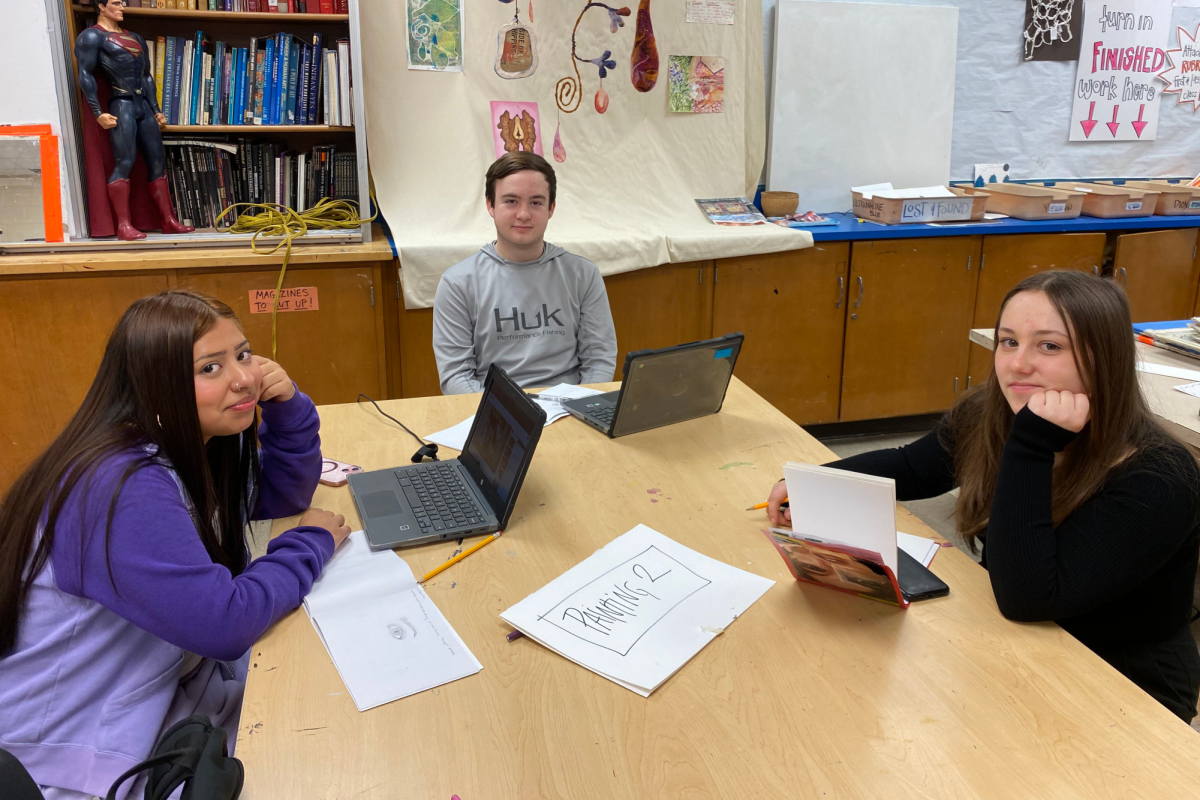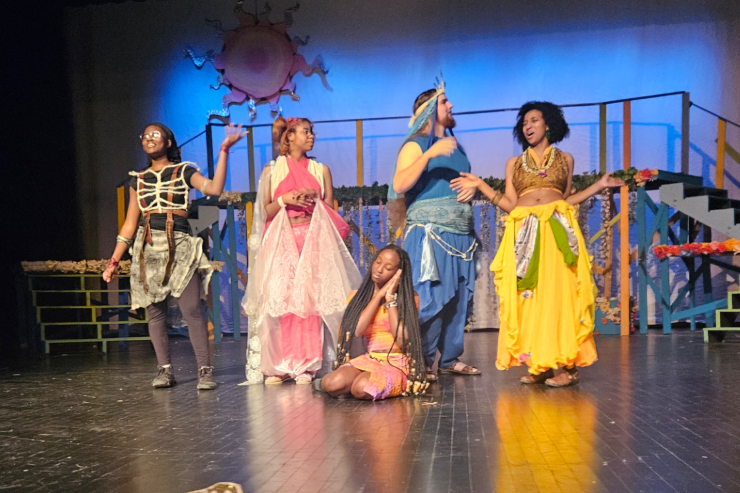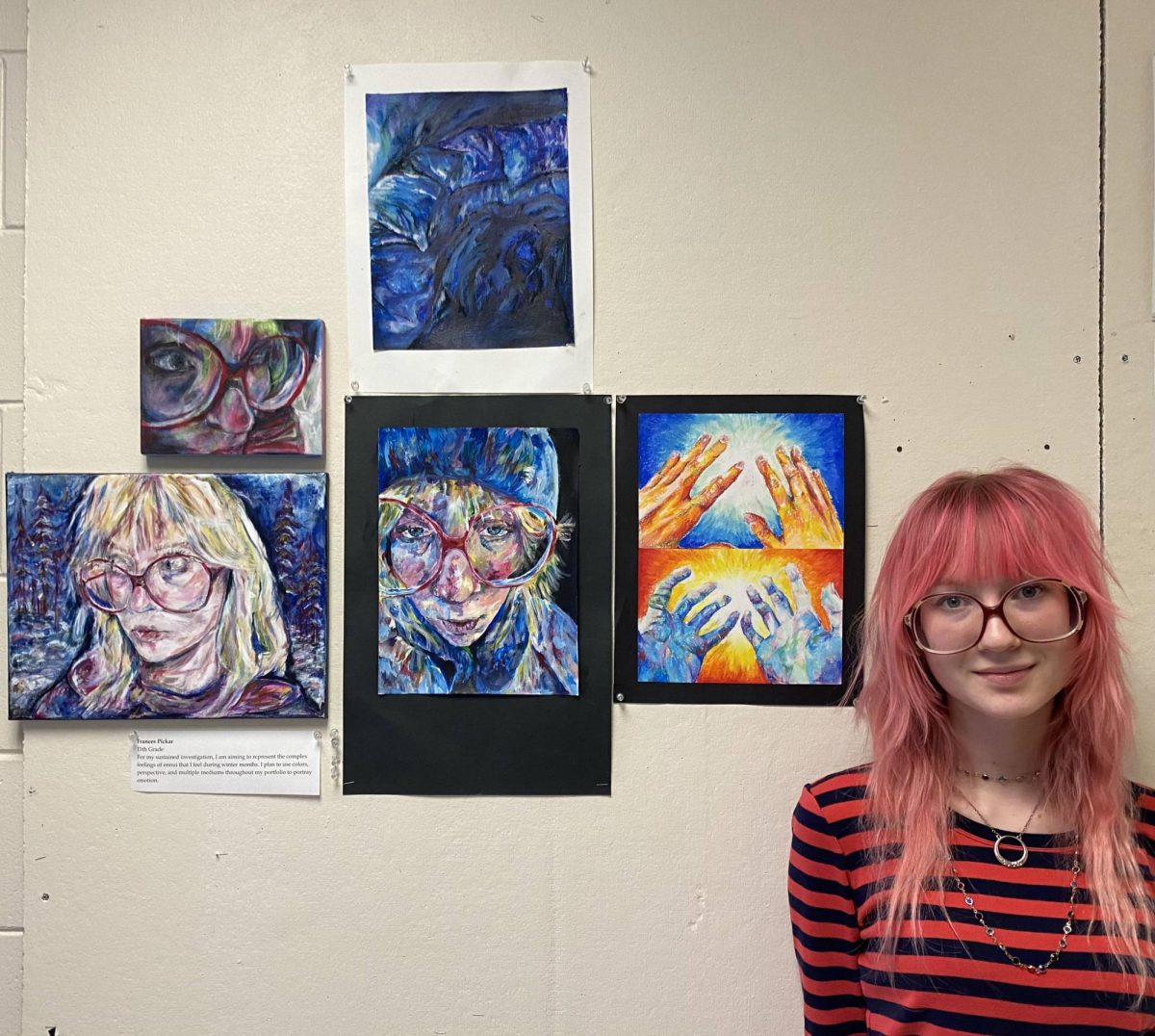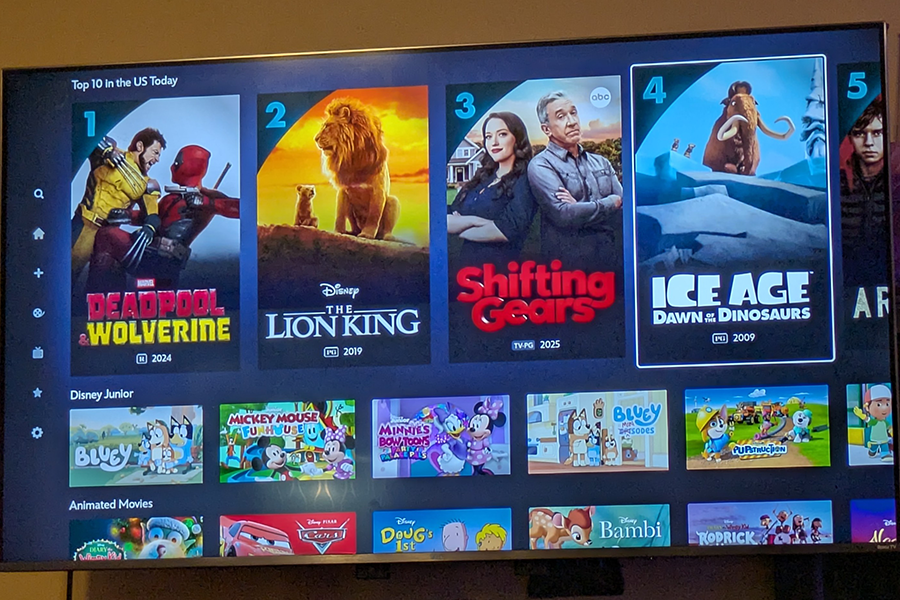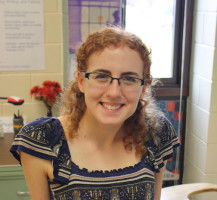For many avid readers, reading is a one-way experience. They pick up the book, spend a short amount of time in the world between the covers, and, when finished, leave it. Their thoughts on the subject may extend to a book group, but, usually, no farther than their immediate communities.
Some of these same such students at South recently got the opportunity to expand their world to an entirely new dimension, through talking to authors.
“It was a really good opportunity for me to meet, and sit down and talk to an author,” stated sophomore Dakessa Hector. “A thing that I liked is that other people can interview them [the authors], but you’re the one actually experiencing the different views.”
Jacob Wheeler and Susan Niz were two of the authors that spoke at South. In sharing their experiences, they each brought a unique story of their lives to the table.
Niz is the author of the currently most checked out book at South’s library: “Kara, Lost.” Her novel tells a story that parallels Niz’s own experiences of being a homeless, runaway teen in the Twin Cities.
“Like Kara I was unwilling to work in the system, leaving me alone and isolated,” Niz said, in front of an auditorium of South students. “”Certain aspects still sort of haunted me, which led me to write this book. . . On the surface I was an educated, professional person, but on the inside I felt like a fraud.”
Niz ran away from her home in the Western suburbs of Minneapolis during high school, and faced the challenges that came with being on her own in the city streets.
“It is extremely dangerous to be out on your own,” Niz warned, though disclaiming that she wasn’t qualified to give advice. “I think the biggest danger to homeless young people is predatory people.”
While living on her own in the city, Niz enrolled in an alternative school to complete her high school degree, until she was taking mainly classes Minnesota Career and Technical College (MCTC). In the time between her homelessness, and where she is now as an ELL teacher at Como Elementary, she has achieved a degree, a book, and distance to reflect on her experiences.
“We all struggle in so many different ways. If life was easy, we wouldn’t be as strong people. It’s good for us to struggle and work hard,” stated Niz. “Whatever you have been through, don’t be ashamed of it. Just own it.”
Jacob Wheeler, the last of the authors to be featured in February, also used writing as a medium to express his life. However, unlike Niz, who used fiction as her vehicle, Wheeler told his story based entirely off of fact.
“I’ve been writing as long as I’ve been breathing. I’ve been writing as long as I’ve known air was good for me. It’s just kind of inherent,” Wheeler said.
Wheeler’s book, “Between Light and Shadow,” tells the factual story of Ellie Walters, a Michigan adoptee from Guatemala. In 2006, Wheeler was part of the process to connect the teenage Walters and her American adoptive family to Walters’ biological mother. Wheeler’s book deals with the corruption in Guatemalan adoptions, and the manipulation involved, in many cases, in separating a mother and her child.
In writing and speaking, Wheeler hopes to challenge ideas that his readers had about adoption, and broader.
“Question your assumptions,” stated Wheeler. “The fact that I’ve met so many adoptees [at South]. . . it’s been really gratifying. The book was written for them.”
Niz and Wheeler’s visits are part of a broader movement and celebration. Besides Black History Month, February celebrates books and reading in I Love to Read Month.
I Love to Read Month has a long, and international history, but at South, it only goes back a couple of years.
“Last year, Sue Kehr and Ms. Blohm said they had an I love to read committee and asked me to join,” said Laura Lanik, a social studies teacher at South. “We really started to want to do some more literary things around here, and so that’s how we started forming the activities that we currently use today.”
Besides her passion for books, Lanik also brings influential connections to the wider writing community through her book blog.
“I had always wanted to write a blog, and I just felt that I needed to do something for myself. I love to read, and I love books, so it was kind of a natural fit to move right into a book blog,” Lanik said of her blog, which she started two years ago. “I review books, I do author interviews, I hold contests, I talk about literary things. All things literary, I guess. It’s fun, it’s a lot of work, I guess I’ve learned a ton.”
Both Niz and Wheeler were contacted through Lanik at the Twin Cities Book Fair in October. Lanik goes to promote her blog, and while she’s at it, invites the authors to speak at South in return for publicity on her website.
“I promote myself and my blog, and a lot of times I’m able to say, well, would you be interested in speaking at South, and if they have a connection to South. Especially if they do have a connection, I want to bring them in,” Lanik said.
In some cases, authors receive more than publicity in exchange for their time. They are paid honorariums, or a certain quantity of money for donating their time by the South High Foundation.
“We chose to pay honorariums, because they deserve it,” said Susan Blohm, a librarian in the media center at South. “They are giving up their own working time, they’re paying for their own gas, their own transportation costs, and if they’re full time writers, there’s very little monetary reward until you become quite famous, which is unlikely for very many people.”
I Love to Read Month, and, by extension, the events at South around the month, has one purpose.
“The goal is to promote, and foster interest in life long reading. The focus is I love to read!” Blohm laughed. “We want people to leave their school years with a love for reading, not as a chore, not as a requirement, and not only as a necessity, but as a recreational choice.”
Like Blohm, Lanik hopes that bringing in authors will get students excited about reading and books, and has seen some of the effects in her own classroom.
“I know students are reading the books that the authors are talking about, and they’re asking about them, and asking questions. And that’s all we can hope for, that they continue to do that, and continue to be interested in reading, and expand their repertoire of knowledge,” Lanik stated.
Hector, who was so appreciative of the author visits, also felt benefit as a student writer.
“I realized that it’s okay to have one vision for your writing, but it not turning out as you wanted it, and that it’s okay, it can even be better,” Hector said. “To also listen to other people’s views on your writing too, because it does help you become a better writer, and it helps the reader enjoy your book more.”
When asked directly, both authors had powerful advice for young writers like Hector.
“Find stories everywhere. Find stories in the most unlikely places,” Wheeler said. “Write about situations you don’t understand.”
Niz closed with words of powerful encouragement.
“Just be very persistent. Don’t give up. If you love to write, then your writing is valid. Just keep doing it regardless of whether you’re going to be a published author.”


